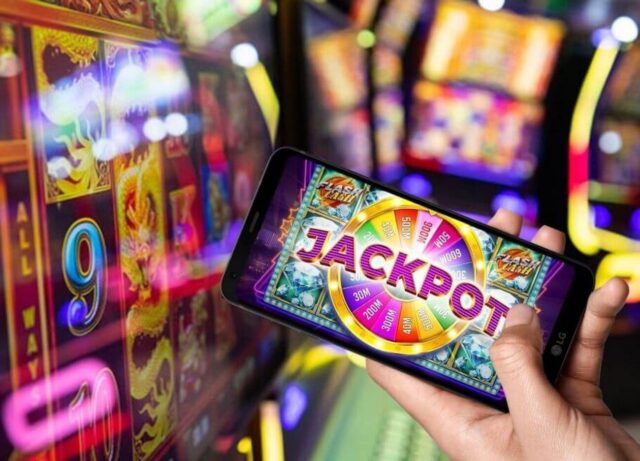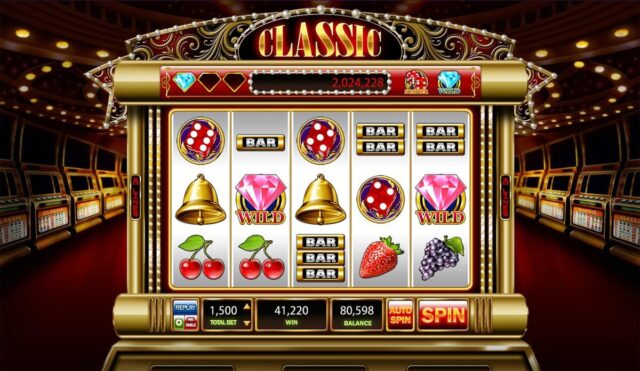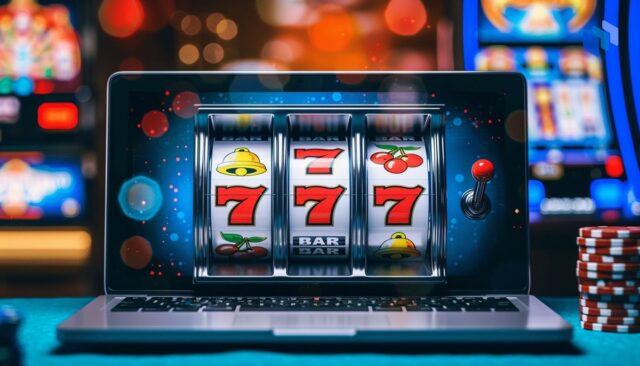
Slot games captivate players with their vivid lights, engaging sounds, and the allure of big wins, making them a central feature in the gambling industry. However, the excitement they offer can sometimes lead to compulsive behavior.
The science behind slot game addiction involves the psychological mechanisms of reward and reinforcement. The unpredictable nature of wins and the frequent near-miss outcomes create a sense of anticipation and excitement that can be difficult to resist. This phenomenon, known as variable ratio reinforcement, is highly effective at encouraging continued play.
Understanding these mechanisms is essential for playing responsibly. Setting limits on time and money, avoiding chasing losses, and recognizing the signs of problem gambling are key strategies for maintaining control.
It’s also beneficial to take regular breaks and engage in other activities outside of gambling to prevent excessive focus on slot games. By being aware of the risks and adopting responsible gambling practices, players can enjoy slot games as a form of entertainment while minimizing the potential for addiction.
The Science Behind Slot Game Addiction

How Slot Machines Work
Slot machines operate on complex algorithms designed to create randomness and unpredictability. Each spin is governed by a Random Number Generator (RNG), which ensures that every outcome is independent of previous spins.
The allure of slot games lies in their potential for large payouts, but the odds are typically designed to favor the house. Despite this, the near-miss phenomenon can lead players to believe they are close to winning, increasing their engagement with the game.
The Role of Dopamine
Dopamine, a neurotransmitter associated with pleasure and reward, plays a significant role in gambling addiction. When a player wins or experiences a near-miss, the brain releases dopamine, creating a feeling of euphoria.
This release can reinforce the behavior, making the player more likely to continue playing. Over time, the brain becomes accustomed to this dopamine surge, leading to a cycle of seeking out the pleasurable experience of gambling.
The Impact of Variable Reward Schedules
Slot machines use variable reward schedules to keep players engaged. Unlike fixed rewards, which are predictable, variable rewards occur at random intervals. This unpredictability can be highly addictive because players are driven by the hope of receiving a reward, much like how a gambler might be motivated by the chance of hitting the jackpot.
This mechanism is similar to the principle used in social media notifications and gaming apps, where intermittent rewards keep users coming back.
Psychological Triggers and Emotional Response
Slot games often incorporate psychological triggers such as visual and auditory stimuli to enhance the gaming experience. Flashing lights, jingles, and celebratory sounds can create an environment of excitement and anticipation.
These elements are carefully crafted to captivate the player’s attention and stimulate the desire to continue playing. Additionally, the immersive nature of slot games can lead to dissociation, where players lose track of time and money spent.
How to Play Slot Games Responsibly

Setting Limits
One of the most effective ways to prevent addiction is by setting clear limits on time and money spent. Before starting, decide on a budget and stick to it. This budget should be an amount that you can afford to lose without impacting your daily life or financial stability. Additionally, set a time limit for each gaming session and use alarms or reminders to ensure you do not exceed this limit.
Recognizing the Signs of Problem Gambling
It is essential to be aware of the signs of problem gambling. These may include a preoccupation with slot games, increasing the amount of money spent, and neglecting other responsibilities or activities. If you find yourself experiencing these symptoms, it may be time to seek help. Many organizations offer resources and support for individuals struggling with gambling addiction.
Taking Breaks and Seeking Support

Taking regular breaks while playing can help maintain a balanced perspective. Stepping away from the game allows you to assess your emotional state and prevent impulsive decisions. Additionally, if you feel that gambling is becoming a problem, do not hesitate to seek support. Support groups, counseling services, and self-exclusion programs are available to assist individuals in managing and overcoming gambling addiction.
Understanding the Odds and Payouts
Educating yourself about the odds and payout structures of slot machines can help you make more informed decisions. Recognize that slot games are designed to be games of chance with a built-in house edge. Understanding that winning is largely a matter of luck rather than skill can help set realistic expectations and reduce the risk of developing addictive behaviors.
Avoiding Chasing Losses
A common pitfall for gamblers is the tendency to chase losses. When players experience a losing streak, they may try to win back their losses by increasing their bets or playing for longer periods. This approach is often counterproductive and can lead to greater financial losses. Accepting losses as part of the gaming experience and sticking to your predefined budget is crucial for responsible play.
Using Technology to Manage Gambling

Modern technology offers various tools to help manage gambling behavior. Many online casinos provide features such as self-exclusion options, spending limits, and reality checks. Additionally, apps and software are available that can help track gambling activities and provide alerts when you exceed set limits. Utilizing these tools can enhance responsible gaming practices and support your efforts to play within your limits.
Conclusion
Understanding the science of slot game addiction is crucial for maintaining a healthy approach to gambling. Slot games, with their vibrant graphics and engaging features, are designed to captivate players, often leading to a high level of excitement and risk of addiction.
The psychological triggers, such as near-misses and the intermittent rewards system, can create a compelling urge to continue playing, blurring the line between entertainment and excessive gambling.
To foster responsible gaming, it’s essential to set clear limits on time and money spent. Establishing these boundaries helps prevent the escalation of gambling behavior and ensures that it remains a form of entertainment rather than a harmful habit. Additionally, players should be aware of the signs of addiction and seek support if they notice any troubling patterns in their behavior.







